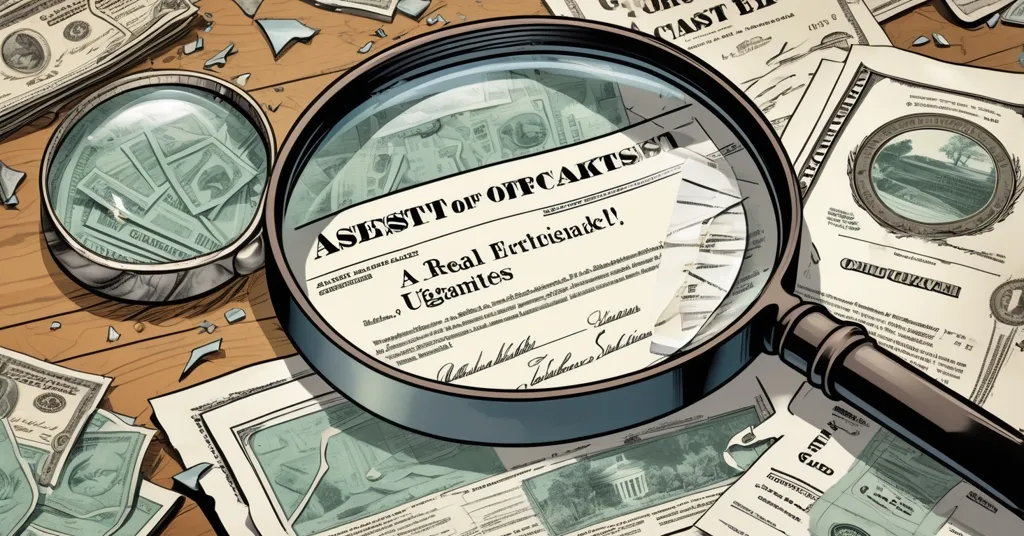SEC Charges Unicoin in $110M Fraud: Asset-Backed Token Claims Debunked

SEC Uncovers $110M Crypto Scandal: Unicoin’s Asset-Backed Claims Fall Apart
The U.S. Securities and Exchange Commission (SEC) has charged New York-based Unicoin and its executives with orchestrating a $110 million fraud, misleading over 5,000 investors. The case highlights the perils of false promises in the crypto world, particularly around asset-backed tokens.
- SEC charges Unicoin and executives with $110M fraud
- Claims of real estate and pre-IPO equity backing debunked
- Unicoin’s aggressive marketing misleads investors
On May 20, 2025, the SEC filed charges against Unicoin, Inc., CEO Alex Konanykhin, board member Silvina Moschini, former CIO Alex Dominguez, and general counsel Richard Devlin. The allegations? They raised $110 million through fraudulent means by selling tokens supposedly backed by billions in real estate and pre-IPO equity. But the real estate holdings Unicoin boasted about were worth only a fraction of what was advertised, leaving investors holding the bag.
Mark Cave, Associate Director of the SEC’s Division of Enforcement, didn’t mince words:
“The real estate holdings Unicoin promoted were worth only a fraction of what was advertised. This case is about trust abused at scale.”
In the crypto world, where the promise of decentralization and freedom often reigns supreme, it’s a stark reminder that if it sounds too good to be true, it probably is.
Unicoin’s marketing was a full-blown assault on the senses, spanning airports, New York City taxis, TV, and social media. They painted a picture of their tokens as the “next generation of crypto,” a safe and legitimate investment. But beneath the hype, the reality was far less rosy. The tokens weren’t backed by the billions they claimed, nor were they registered with the SEC as promised.
This case isn’t just about one company’s misdeeds; it’s a snapshot of the broader regulatory uncertainty that continues to swirl around cryptocurrencies in the U.S. The SEC’s action against Unicoin is part of a wider campaign to enforce securities laws in the crypto space, a space that has seen its fair share of ups and downs with other high-profile cases like those against Coinbase and Ripple.
As the dust settles, the potential consequences for Unicoin and its executives loom large. If the SEC wins the case, they could face permanent injunctions, director bans, and hefty financial penalties. General counsel Richard Devlin settled for $37,500 without admitting wrongdoing, but the SEC’s message remains clear:
“Marketing hype cannot override legal obligations.”
For those of us championing the cause of decentralization and the transformative power of blockchain technology, cases like these are a sobering reminder. While Bitcoin and other cryptocurrencies hold immense promise, the road to widespread adoption is paved with both innovation and pitfalls. It’s crucial to stay vigilant, not just against the centralized powers that be, but also against those within our own community who might exploit the promise of a new financial era for their own gain.
As we navigate this evolving landscape, it’s important to remember that the principles of effective accelerationism (e/acc) should guide us towards a future where technology liberates rather than enslaves. Bitcoin maximalists might argue that such scandals highlight the superiority of Bitcoin’s simplicity and transparency, but it’s also true that altcoins and other blockchains fill niches that Bitcoin does not. The challenge is to foster an environment where innovation can thrive without succumbing to the dark side of hype and deceit.
Unicoin promised the moon but delivered a crater. The lesson? Transparency, accountability, and a healthy dose of skepticism are our best defenses against the scammers and fraudsters who threaten to derail the crypto revolution. And remember, in the world of Bitcoin and beyond, the only thing worse than a bad investment is a bad actor.
For more detailed information on the case, you can visit the SEC’s official press release. To understand the broader context of SEC’s actions in the crypto space, check out recent enforcement actions. The charges against Unicoin and Alex Konanykhin provide further insight into the specifics of the case. For investor impact and reactions, the discussion on Reddit might be helpful. For strategies to prevent such frauds, refer to crypto fraud prevention strategies. Finally, to grasp the broader impact of SEC actions on the cryptocurrency market, read this analysis.
Key Questions and Takeaways
What actions has the SEC taken against Unicoin?
The SEC has filed charges against Unicoin and its executives for orchestrating a $110 million fraud, alleging misleading claims about asset backing and SEC registration.
How did Unicoin mislead its investors?
Unicoin misled over 5,000 investors by falsely claiming that its tokens were backed by billions in real estate and pre-IPO equity and were registered with the SEC.
What were the key elements of Unicoin’s marketing campaign?
Unicoin’s campaign included extensive advertising across airports, New York City taxis, TV, and social media, positioning the investment as the “next generation of crypto.”
What potential consequences could Unicoin and its executives face if the SEC wins the case?
They could face permanent injunctions, director bans, and hefty financial penalties, with the SEC also seeking to recover the money made through the fraudulent deals.
What does the Unicoin case indicate about the SEC’s approach to cryptocurrency regulation?
The case signals the SEC’s aggressive enforcement stance against misrepresentation and fraud within the cryptocurrency space, emphasizing that marketing hype cannot override legal obligations.
How does this case reflect the broader regulatory environment for cryptocurrencies in the U.S.?
It highlights the ongoing regulatory uncertainties and the SEC’s commitment to enforcing securities laws amid a complex and evolving landscape for digital assets.



